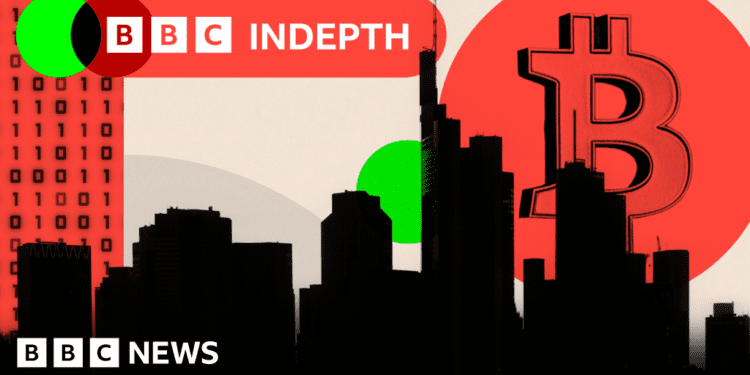Azi said he was excited to be “on the precipice of what I think is the next renaissance”. But before this renaissance, he predicted a “Luddite movement” against new technology that would destroy millions of jobs and monopolise the global economy. The Luddites would fail, Azi said. Yet he predicted that the transition period to what he called the “next stage” of human societal evolution – the “network state” stage – would be violent and “Darwinistic”.
Far from being perturbed by this prospect, Azi seemed excited at the thought that out of the smouldering ashes of democracy, new kings would emerge: corporate dictators ruling over their networked empires.
I wandered over to the bar and got myself a drink. There I got talking to two young women who did not look like they were part of the crypto crowd. Ezra was the manager of another nightclub nearby, her friend Dylan was a student. It looked like they’d been invited to add a bit of glamour to what was – essentially – a party of crypto-bros and computer geeks. But they had some thoughts about the whole network state idea.
“What happens if you don’t have enough employees in the hospital or at the school for the kids?” Dylan asked. “It is unrealistic to start an entire city without any government.” To Ezra, the whole idea seemed dystopian. “We wanted to see what a ‘real’ cult meeting was like,” she said, I think in jest.
Just then, Dryden Brown appeared, the co-founder of Praxis. When he went outside for a cigarette, I followed him. The Praxis Magazine was a way to showcase the new culture he was hoping to build, he told me. Praxis, he said, was about “the pursuit of the frontier” and of “heroic virtue”.
I doubted Dryden would last very long in a covered wagon out on the prairie. He looked exhausted by it all. I wanted to ask him some pointed questions about the network state project: who would be the citizens of this brave new world? Who would govern it? What was with all the alt-right memes? And – Dylan’s question – who was going to staff the hospitals?
But we kept getting interrupted by more guests arriving. Dryden Brown invited me to visit the “Praxis Embassy” the following day. We said our see-you-tomorrows and went inside. The party was getting wilder. Ezra and Dylan and some friends who looked like models were climbing up on top of the Xerox machine. They were busy photocopying – not pages from the magazine, but bits of their bodies. I grabbed a copy of the magazine and left.
Back at my tiny Airbnb above a Chinese supermarket, I leafed through it. Alongside the white supremacist memes and ads for guns, there was a QR code. It linked to a short film: a 20-minute polemic against the emptiness of modern life, a lament for a vanished world of hierarchies and heroism.
Source link : http://www.bing.com/news/apiclick.aspx?ref=FexRss&aid=&tid=66ecb37474614e88a9ba1ce0f28b4349&url=https%3A%2F%2Fwww.bbc.co.uk%2Fnews%2Farticles%2Fcwyl171lyewo&c=3606284148495587296&mkt=en-us
Author :
Publish date : 2024-09-19 12:24:00
Copyright for syndicated content belongs to the linked Source.







